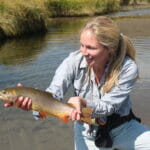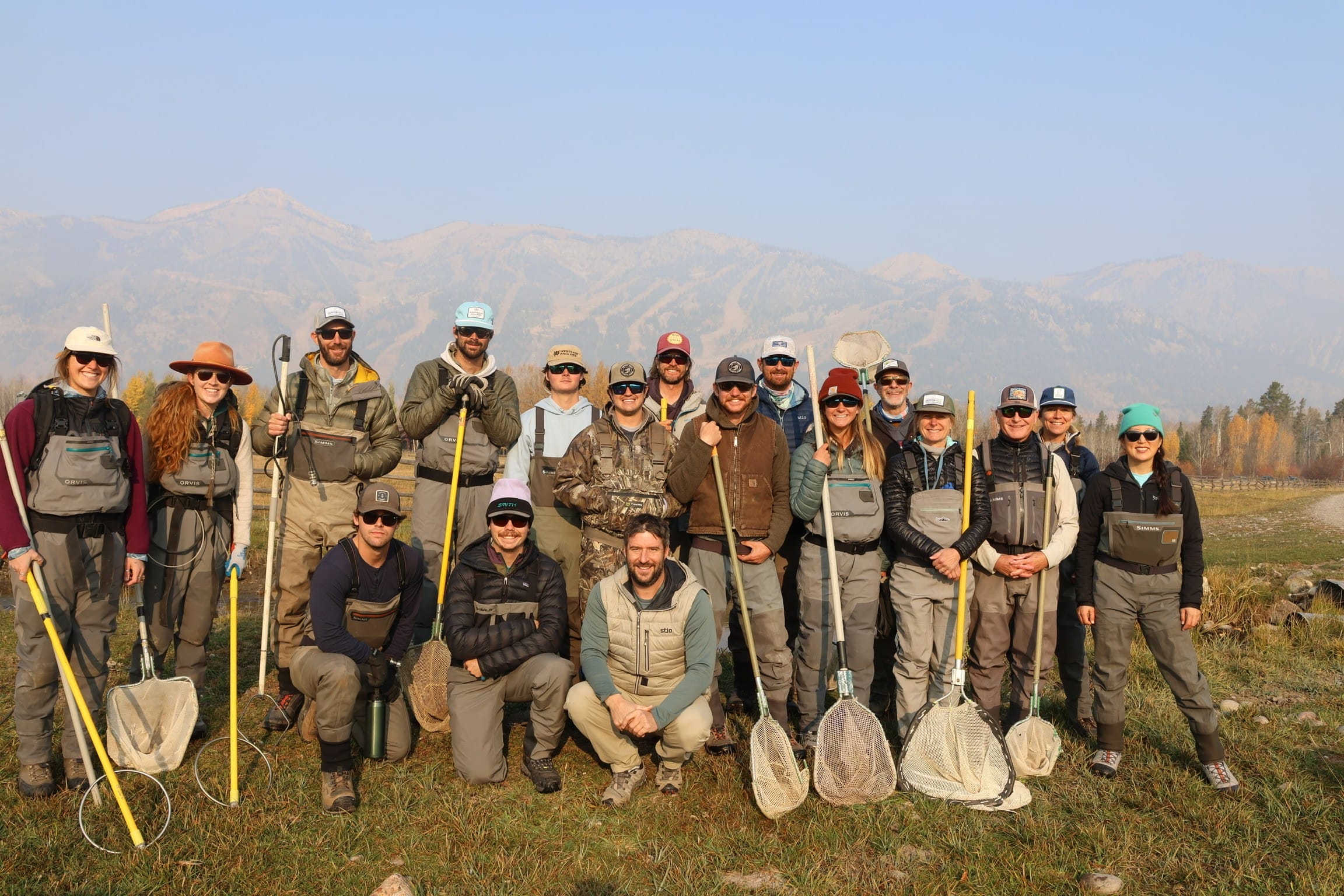Fifteen years before National Volunteer Week was officially recognized, Trout Unlimited (TU) was founded on a revolutionary premise: grassroots volunteers would anchor our work in the watersheds, communities and riverbeds of our mission. 65 years later, TU continues to thrive in over 400 communities across the U.S., thanks to volunteers who march steadily onward, planting trees, cleaning up trash, inspiring the next generation and advocating for conservation with an enduring sense of purpose.
The numbers tell part of the story. Last year alone, TU volunteers recorded:
- 630,931 hours of volunteering
- $16 million raised and invested locally
- 11,753 grassroots projects reaching nearly 246,000 participants
- Over 106,000 young people engaged in conservation education
- 16,000 trees planted, covering 60+ acres of riparian habitat
- 75,000 pounds of trash removed from rivers
These statistics highlight the extraordinary scope of TU’s grassroots impact. But the true magic of volunteerism lies in the intangible connections formed between people and their watersheds and within the communities strengthened by TU’s presence.
A simple structure
This past week, as members of our Ripple Effect National Leadership Council workgroup brainstormed ways to engage more people, they articulated a beautifully simple structure for TU’s work: play, learn, serve and lead.
For many, the journey with TU begins with a love of fishing. This is how we play, and it is really, really fun. Play is essential, even for adults, because it fosters joy, creativity and connection, rejuvenating our spirits and strengthening the bonds that unite us. Amidst a loneliness epidemic, that we come together at TU to fish may in fact be our secret sauce.
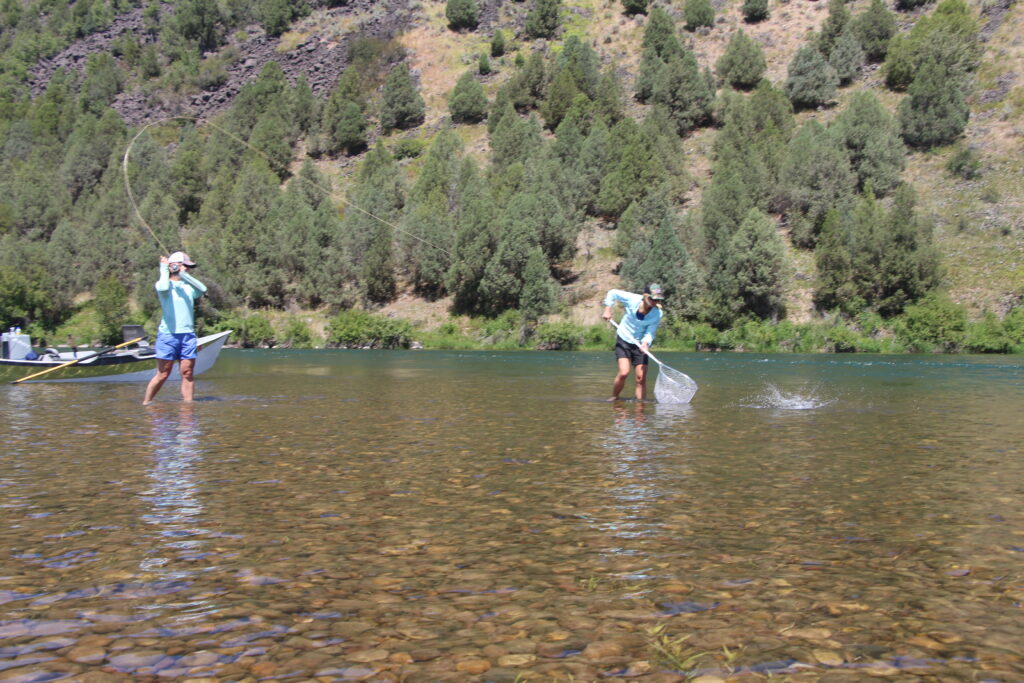
Fly fishing, as we know, is a lifelong learning journey, and TU volunteers eagerly share their knowledge while continuing to grow and learn themselves. You can study our sport and the dynamics of the natural world that make it possible for a lifetime and always be learning more of the intricate blend of art, science and exploration. TU volunteers are not only passionate students but also enthusiastic teachers.

TU volunteers serve their communities and watersheds through hands-on restoration, advocacy and education. Whether planting trees to stabilize riverbanks, leading clean-up efforts to remove trash, helping veterans or cancer survivors find healing through fly fishing or teaching the next generation about conservation, our volunteers embody service. They give their time and talent to leave watersheds healthier and communities stronger.
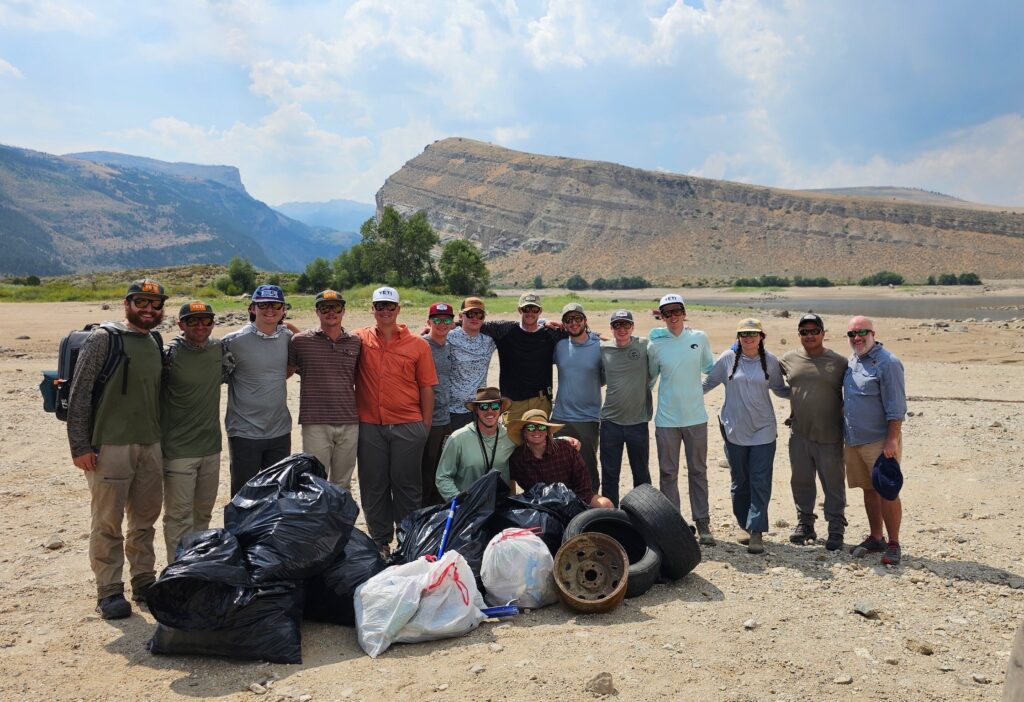
Finally, TU volunteers lead. They organize and energize chapters, run youth camps, chair councils and spearhead initiatives that inspire others to join our mission. Their leadership ensures TU chapters, councils, alternative engagement groups and 5 Rivers clubs continue to thrive and make a difference, generation after generation.
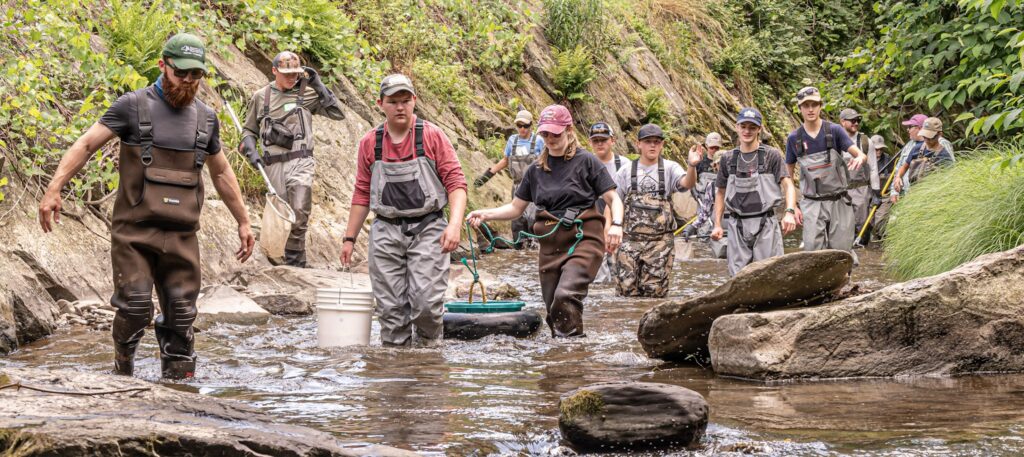
Putting it into practice
This National Volunteer week, four everyday examples of this crossed my desk, bringing this to life for me.
My friends in Michigan shared with pride the trailer for their new video, Beyond the Stream, that spotlights the state TU Youth Trout Camp set on TU’s homewaters, the Au Sable. What a joy to see those kids play in the stream, smiles as big as the trout they caught. The volunteers that run this camp are heroes. They make it look easy—it’s not. They bring together these kids and keep igniting the spark of joy, in so doing creating the next wave of conservation leaders.
And, what a treat it was this week to see my friends J. Michelle Swope and Steve Miller of the Washington TU Council demonstrate just how much you can learn with TU in this new video The White Salmon Spawning Survey Project. Combining community science with grassroots activism, their efforts epitomize what TU does best—pairing science, volunteer capacity and passion to achieve lasting conservation outcomes.
All week, pictures kept streaming in from the TU Costa 5 Rivers Rendezvous where over 70 students from 14 different schools braved the cold spring weather to serve the western North Carolina community of Banner Elk that was so impacted by Hurricane Helene. Type 2 fun, they called it.
In the WisTrout magazine I read the inspiring story about Myk Hranicka, who just stepped up to lead the Wisconsin Council. When asked what his proudest accomplishment with TU is, he answered, “I don’t think I’ve done it yet.” He goes on to say, “Our workdays are my favorite thing to do, but the TIC program, kids camps and everything else… I think one thing I’m most proud of is just inspiring people to come and take part in what TU does.” Myk concludes with, “I’ll leave you with something I had to tell myself almost every day when I started getting stressed about the responsibilities that come with leadership. ‘Remember, we are all just volunteers, this is supposed to be fun!’ Let’s have some fun!”
These stories demonstrate that every day, in every corner of this country, TU volunteers foster optimism and resilience—not just for ecosystems but for communities. This National Volunteer Week, we honor your efforts and invite others to join this transformative work. Whether you’d like to play, learn, serve or lead, we welcome you.
Visit tu.org/events, tu.org/chapters or reach out to the TU engagement staff to find your place in the TU family.


